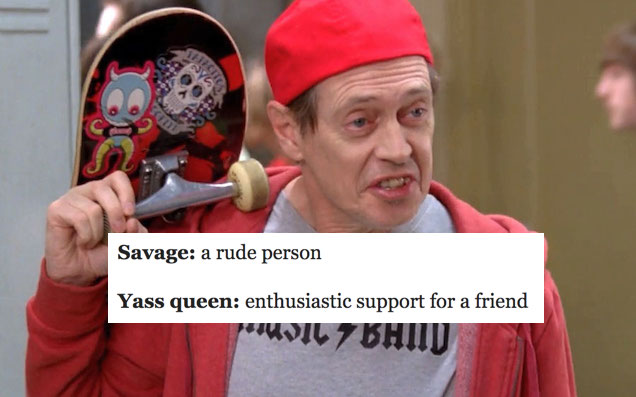
Ever since the day I turned 20, I have never claimed to be a teen. I, quite simply, am not. I don’t pretend to understand what teens do or how they do it. Like most adults, I view teens as a terrifying, unknowable mystery. I am, however, relatively confident that there is a group of people who know less about teens than I do: every single person who has ever worked at or written for the Daily Telegraph.
Although presumably once teens themselves, the psychic strain of waging endless culture war with everyone too young to remember the Beatles breaking up has left them with the memories of someone who was born 45 years old, placed at a desk, and told to become extremely angry about Snapchat and avocado toast.
Despite this, they’re still keen to give trying to figure the teens out a crack, bless their hearts. To help their audience, the Tele very kindly wrapped the results of a Facebook Messenger / YouGov Galaxy survey about slang teens use in a bit of an explainer on what the words actually meant. As with every single attempt by an adult to define teen slang, it was close-ish to the mark but wrong in a way I can only describe as delightful.
Let’s take, for instance, their attempt to decode “salty” and “savage”:
The survey, conducted by YouGov Galaxy and Facebook Messenger, found the top five “teenglish” slang words were “dude”, “K” (okay), “salty” (to be rude), “savage” (to be bitter) and “LOL” (laugh out loud).
I have a slight suspicion that they might have gotten the two switched around, but even then, that definition robs these beautiful, rich words of so much nuance.
Their take on “basic” wasn’t too bad, if a little broad (“too mainstream“) but “shade”, “shook”, and “lit” took a spectacular roughing up through the Tele’s Teen Translator 5000:
“Throwing shade” (insults) is still used by 18- to 19-year-olds, as is “shook” (to be surprised). “Lit” is also popular to describe something good and can also be used sarcastically.
Additionally, I would argue that pretty well all words can be used sarcastically, if the speaker is being sarcastic when using them.
I’m going to skip past “peng” and “eets” here for fear I am either horribly out of touch or being pranked, but will instead focus on the adorable difficulty with which they appear to be struggling with “peak” used as an adjective:
Emerging trendy words include “peng” (cool), “eets” (short for sweet) and “peak” (something bad or good).
“But where is their signature pearl-clutching?” I hear you ask. Oh don’t worry, it’s there:
Etiquette expert Anna Musson told The Daily Telegraph texting has impacted the language of teens, and parents should ensure kids can speak in full sentences, apologise and resolve differences in person.
It was also important for them to appreciate when a text message was inappropriate, and know that using slang words in a workplace can be a “fast ticket” to unemployment.
Obviously, we should all of us be terrified that our teen child could well be sacked from the deli of their local supermarket for telling a customer that the champagne leg ham is particularly “on fleek” today.
They finish up with a final list of new slang and some brief definitions that once again overshoot the mark juuust enough to land safely nestled in the uncanny valley. This time “savage” has become a noun and “lit” has gained a level of specificity that has only made it more incorrect:
Dude: mate
K: OK
Salty: a bit angry
Savage: a rude person
Yass queen: enthusiastic support for a friend
Basic: only interested in mainstream
Shook: surprised
Lit: when something’s going extremely well
Look, you absolutely gave it a bash.



